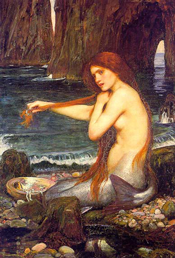
25 Feb 2008
VINCI: La Partenope
La Partenope: Dramma per musica in three acts.
Mozart and Salieri, an opera in one act consisting of two scenes.
Nicolai Rimsky-Korsakov (1844-1908), composer. Libretto derived from Alexander Puskhin's play of the same name.
First performance: 7 December 1898 in Moscow.
Ariadne auf Naxos, Oper with a prologue and one act. Music composed by Richard Strauss. Libretto by Hugo von Hofmannsthal.
La Vestale, a tragédie lyrique in three acts.
Boris Godunov, an opera in four acts with prologue
Modest Mussorgsky, composer. Libretto by the composer, based on Alexander Pushkin's drama Boris Godunov and Nikolai Karamazin's History of the Russian Empire
First performance: 8 February 1874 at the Mariinsky Theatre, St. Petersburg
Il Trovatore, dramma in four parts.
Only a few months following the premiere of Der Rosenkavalier, Hugo von Hofmannsthal proposed a new opera to Richard Strauss based on Molière’s comedy-ballet, Le Bourgeois gentilhomme (in German, Der Bürger als Edelmann).
Die Entführung aus dem Serail, Singspiel in 3 Acts.
Music composed by Wolfgang Amadeus Mozart (1756–1791). Libretto by Johann Gottlieb Stephanie the Younger, based on an earlier libretto by
Christoph Friedrich Bretzner.
Die Entführung aus dem Serail, Singspiel in 3 Acts.
Music composed by Wolfgang Amadeus Mozart (1756–1791). Libretto by Johann Gottlieb Stephanie the Younger, based on an earlier libretto by
Christoph Friedrich Bretzner.
Arabella: Lyrische Komödie in three acts
Die Entführung aus dem Serail, Singspiel in 3 Acts.
Music composed by Wolfgang Amadeus Mozart (1756–1791). Libretto by Johann Gottlieb Stephanie the Younger, based on an earlier libretto by
Christoph Friedrich Bretzner.
La Gioconda, dramma lirico in four acts.
Music composed by Amilcare Ponchielli (1834–1886). Libretto by Arrigo Boito (under the pseudonym Tobia Gorrio), based upon Victor Hugo's Angelo, Tyrant of Padua (1835).
Don Carlo, an opera in four acts. Music composed by Giuseppe Verdi (1813–1901). Libretto by Joseph Méry and Camille Du Locle after Friedrich von Schiller’s dramatic poem Don Carlos, Infant von Spanien. Revised version in four acts (French text revised by Du Locle, Italian translation by Achille de Lauzières and Angelo Zanardini).
Un ballo in maschera, a melodramma in three acts.
Music composed by Giuseppe Verdi. Libretto by Antonio Somma, based upon the work of Eugène Scribe Gustave III ou Le bal masqué (1833)
Medea: Melodramma tragico in three acts.
Die Tote Stadt, an opera in three acts.
Music composed by Erich Wolfgang Korngold (1897-1957). Libretto by Paul Schott (Julius and E. W. Korngold) after the novel Bruges la morte by Georges Rodenbach.
Some Details concerning the Revolution inaugurated by Rossini
Manon Lescaut, dramma lirico in quattro atti
Elektra: Tragedy in one act.
Lyric Opera of Chicago has announced both schedules and cast-lists for is Spring 2020 performances of Richard Wagner’s Ring Cycle. Given the series of individual productions already staged by the company since Fall 2016, that pave the way for the complete cycle, Lyric Opera of Chicago’s complete production should affirm the artistic might of the great composer.
“Diacono himself does not know what musical talent he possesses” – Mascagni

La Partenope: Dramma per musica in three acts.
Music composed by Leonardo Vinci. Libretto by Silvio Stampiglia.
First Performance: 1725, Teatro San Giovanni Grisostomo, Venice.
| Principal Characters: | |
| Rosmira, Princess of Cyprus | Soprano |
| Partenope, Queen of Partenope (later Naples) | Contralto |
| Arsace, Prince of Corinth | Soprano |
| Armindo, Prince of Rhodes | Tenor |
| Emilio, Prince of Cuma | Mezzo-Soprano |
| Ormonte, Captain of Partenope's Guard | Tenor |
Background:
Partenope (or Parthenope) appears in Greek mythology and classical sources as one of the sirens who taunted Odysseus. One version has her throwing herself into the sea because her love for Odysseus was not returned. She drowns. Her body washes ashore at Naples, which was called Partenope after her name. From this, Silvio Stampiglia created a fictional account where Partenope appears as the Queen of Naples. According to Robert Freeman:
[T]he libretto for Partenope . . . [was] first set for performance in Naples during 1699 with music by Luigi Mancia, and produced all over Italy in more than a dozen versions with music by a variety of composers . . . [The libretto involves] a young lady named Rosmira, once betrothed to and then deserted by Arsace, now a suitor of Partenope, Queen of Naples, where the drama takes place. Early in the libretto, Rosmira, disguised as a man, charges Arsace with infidelity and defies him to redeem his honor by promising never to reveal her identity. After Arsace promises, Rosmira taunts him before the court, then challenges him to a duel, which Arsace quite naturally tries to evade. But in the final scene Arsace hits upon a solution. He agrees to the duel, but on condition that it be fought with combatants stripped to the waist. . . Rosmira admits her identity and there is no duel.Notes, Vol. 28, No. 2 (Dec., 1971), pp. 216-217.